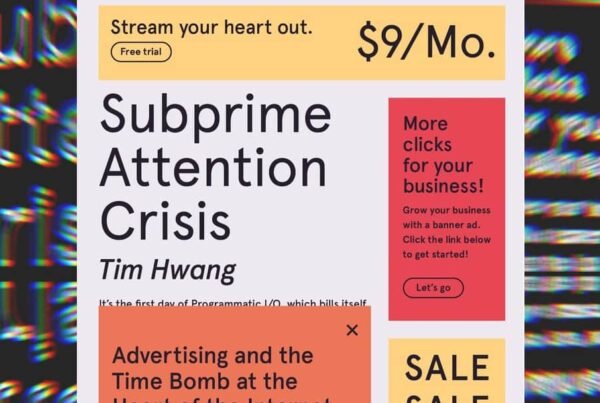In the rare occasions I log onto Instagram on my “burner phone,” I am pestered with advertisements for exercise apps, shape wear, weight loss products and healthy meal subscription boxes.
I didn’t think much of it, until the day I saw an ad that made it click for me: Instagram – and its parents company Meta – must think I’m an elderly woman who rarely leaves her couch. The ad that brought me to this realization was a video showing a white-haired woman in her 70’s doing a “gentle walking workout” in her living room. I gasped when I saw it because it made me realize how many data points Meta uses to surface advertisements for its users. In my case, it was probably my burner phone’s accelerometer and the fact its Wifi is constantly connected to the same router; the burner phone never leaves my home, so Meta thinks I’m a virtual shut-in who walks less than 300 steps a day. And maybe it thinks I’m a grandmother because in my rare private Stories to friends I have sometimes typed “my 3-year-old”. Could it be that Meta thinks I’m her grandmother, instead of her mother?
In reality, I walk at least 10,000 steps a day every day – my average this month is 14,000! – as a city dweller who goes everywhere by foot. I’ve been a vegetarian my whole life, I avoid processed foods and limit my sugar intake. If anything I’m technically a little underweight (and I’m often reminded by my Italian mother that I should eat more).
Still, these very insistent ads by Meta made me a little angry on behalf of women who are self-conscious about their extra pounds or their aging bodies (I made a documentary about this issue, so I am particularly sensitive to it). If I were a 70-something slightly out-of-shape grandmother, I would quickly get fed up with video ads showing weight loss routines for seniors and young women modeling shape wear.
One thing is certain: I am happy – and feeling vindicated – about all the precautions I take when I use Meta apps.
Rightfully distrustful of Meta
Mindful of all the scandals that have rocked Meta over the years and the company’s voracious appetite for private data to be served to advertisers, I don’t have any of their apps on my main phone.
I deactivated my Facebook account in 2017, deleted My WhatsApp account in early 2020, and regretfully resumed using Instagram in 2023 after Twitter imploded, following its takeover by Elon Musk. I now have Meta’s Instagram and Threads installed on a “burner phone” that:
- has a different Apple ID (a brand new one made just for the burner phone)
- is always home
- has microphone and camera access cut off with hardware (I don’t trust Meta to honor my iPhone’s privacy settings)
- has a completely empty address book and camera roll (same lack of trust issues)
Insecurity Sells
So maybe now Meta thinks I’m a grandmother who could use shape wear and gentle walking workouts. And my oh my are they insistent with these messages – they are absolutely RELENTLESS.
I find the disparity between advertising content and my real life so stark that I sometimes take screenshots of these ads for my records. I suppose Meta knows about these screenshots and thinks the ads must be relevant. And so the pestering continues.
“Insecurity Sells” is the title of one of the “chapters” of my documentary The Illusionists. And it makes me sad and angry that a company like Meta can so easily harass vulnerable people to make a profit – its ad revenue is expected to reach 70 BILLION dollars this year.
The toxic side of ad tracking
The website of the European Digital Rights (EDRi) association has a thought-provoking blog post about the dark side of digital advertising: “Adtech is watching you.”
An excerpt:
The Adtech industry reassures us that they are doing it for the sake of Small and Medium Businesses, as well as to show relevant ads to you. However, the reality is that they target mothers who just had stillbirths with baby ads, and serial gamblers who are trying to quit with gambling ads, or simply send creepy ads.
Show me your ads
Can you share stories of invasive, potentially creepy ads you’ve come across online? How they made you feel and if they have changed the way you use apps?
Please share your stories in the comment section or via email. I’ll include them in a follow-up post about ad tracking next week.
As always, thanks for being here,
Elena
Note: this post originally appeared on my Ghost blog on June 16, 2024. I am currently in the process of migrating all blog posts here.




